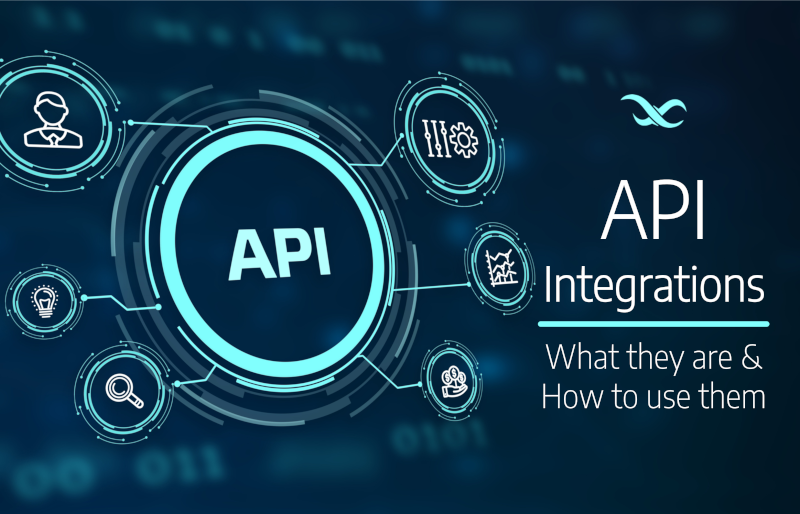In the realm of website and app development, APIs (Application Programming Interfaces) are pivotal for creating dynamic, efficient, and user-friendly applications. They allow different software systems to communicate and share data seamlessly. Understanding the role of API integrations can enhance the functionality of your projects and lead to better user experiences. Here’s an overview of how APIs contribute to website and app development.

Table of Contents
Toggle1. Enhancing Functionality
APIs extend the capabilities of your website or app without requiring you to build every feature from scratch. By integrating APIs, developers can:
- Leverage Existing Services: Use APIs to incorporate third-party services such as payment processing (e.g., Stripe, PayPal), mapping services (e.g., Google Maps), and social media functionalities (e.g., Facebook Login).
- Add Advanced Features: Integrate machine learning or AI capabilities through APIs from platforms like IBM Watson or Google AI to enhance your app’s intelligence and responsiveness.
2. Streamlining Development Processes
APIs help streamline the development process by:
- Reducing Development Time: Developers can focus on core functionality while relying on APIs to provide additional services, significantly reducing the time required to build complex features.
- Encouraging Reusability: APIs enable developers to reuse code and services across different projects, promoting efficient coding practices and reducing redundancy.
3. Facilitating Data Exchange
One of the primary roles of APIs is to facilitate data exchange between different systems. This is crucial for:
- Interoperability: APIs allow different software applications to work together, making it easier to connect disparate systems and services.
- Real-Time Data Access: With APIs, applications can fetch and display data in real-time, ensuring users receive the most current information. For example, a weather app can pull real-time data from a meteorological API.
4. Improving User Experience
Integrating APIs can significantly enhance the user experience by:
- Personalization: APIs can deliver personalized content based on user behavior and preferences. For instance, e-commerce platforms can use recommendation APIs to suggest products to users based on their browsing history.
- Seamless Navigation: By integrating APIs for features like chatbots or live support, users can receive immediate assistance without leaving the app or website, improving overall satisfaction.
5. Scalability and Flexibility
APIs provide the scalability and flexibility needed for growing applications:
- Easier Scaling: As your user base grows, APIs can help manage increased data traffic and functionality demands without overhauling the entire system.
- Modular Architecture: APIs promote a modular approach to development, allowing businesses to add or remove features as needed without disrupting existing functionality.
6. Securing Applications
APIs play a crucial role in enhancing application security:
- Authentication and Authorization: Many APIs provide secure authentication methods (e.g., OAuth) to protect user data and ensure that only authorized users can access specific features.
- Data Encryption: APIs can facilitate encrypted data transfer, ensuring sensitive information remains secure during transmission.
7. Supporting Mobile Development
For mobile app development, APIs are indispensable:
- Backend Communication: Mobile apps often rely on APIs to communicate with backend servers, fetching data and sending user inputs.
- Cross-Platform Functionality: APIs enable developers to create mobile apps that function seamlessly across different platforms, enhancing the reach and usability of applications.
8. Future-Proofing Applications
In a rapidly changing tech landscape, APIs help future-proof applications by:
- Adapting to New Technologies: APIs allow developers to easily integrate new technologies and services as they emerge, keeping applications relevant and up-to-date.
- Third-Party Integrations: APIs enable the integration of emerging third-party tools and services without extensive redevelopment, allowing businesses to adapt to market changes quickly.
Conclusion
API integrations are essential for modern website and app development, offering a myriad of benefits that enhance functionality, streamline development processes, improve user experience, and ensure security. By leveraging APIs, developers can create robust, scalable, and adaptable applications that meet the evolving needs of users and businesses alike. As technology continues to advance, understanding and effectively utilizing APIs will remain a cornerstone of successful digital development.


No responses yet